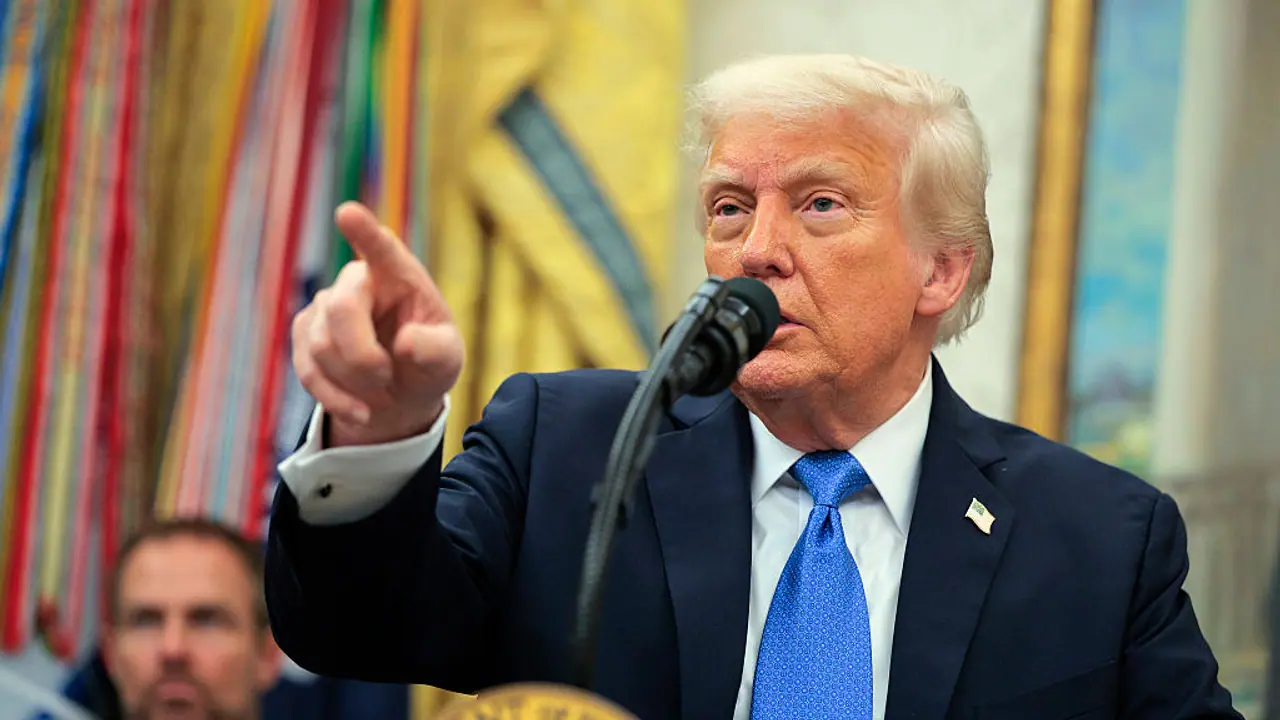Following a setback in court regarding the deportation of international students, the Trump administration has announced new measures. These include halting visa processing and implementing stricter social media scrutiny for prospective students.
The Trump administration has stopped scheduling new visa interviews for international students at US embassies and consulates around the world. This pause is part of a new plan to look more closely at students’ social media activity before giving them visas.

Students from other countries intending to study at US universities typically undergo visa interviews at US embassies in their home countries. Most US universities rely on international student fees, which are generally higher than those for domestic students. A State Department spokesperson clarified on Tuesday that stringent measures will continue as it's crucial to know who is entering the country.
What triggered the move?
The decision comes in the wake of a growing controversy involving Harvard University. The Department of Homeland Security recently attempted to revoke Harvard’s certification to admit international students, as the university did not submit details of how it was addressing allegations of antisemitism on campus.
Federal officials claimed that Harvard failed to provide sufficient information about steps it was taking to ensure compliance with the requirements of the Student and Exchange Visitor Program (SEVP), which includes maintaining a safe and inclusive environment for all students. Harvard has denied any wrongdoing and argued that the attempt to revoke its certification was politically motivated and an attack on academic independence.
Although a federal judge has temporarily blocked that move, it has heightened tensions between universities and the government over academic freedom and immigration policy. Trump said that American taxpayers should not be paying to support “too many foreign students” at the university.
“Part of the problem with Harvard is they're about 31% foreigners coming to Harvard. We have Americans who want to go there and can't go there. We want a list of those foreign students, many will be okay, and I assume with Harvard, many will be bad," he added, while stating that he had no problem with students from other countries.
What are the different types of visas?
There are three types of Visas, namely F Visa– for students who want to study at a college, university, or language school in the US, M Visa– for students who want to take vocational or technical training (like learning a trade), and J Visa– for people in exchange programs, including visiting scholars, researchers, and some students.
Frequently Asked Questions (FAQs):
Q: Who is affected by the visa interview freeze?
A: International students seeking to schedule new visa interviews for F, M, or J visas are affected. Those with existing appointments are not impacted at this time.
Q: How many Indians are studying in the US?
A: As of the 2023–2024 academic year, around 3.3 lakh Indian students are studying in the US. Of these, nearly two lakh are doing postgraduate courses like master’s or PhDs. Indian students make up almost 30% of all foreign students.
Q:How long will the freeze last?
A: The duration is currently unspecified. The freeze will remain until the State Department issues new guidelines regarding social media screening.
Q: What is the rationale behind the policy?
A: The administration cites national security concerns, aiming to prevent individuals with extremist ties from entering the US. Enhanced social media screening is intended to identify such risks.
Q: What should prospective international students do?
A: Students are advised to stay informed through official channels, maintain a cautious online presence, and consult with their prospective institutions for guidance.
Q: Can this decision be nullified?
A: US courts have the authority to review and block actions taken by the executive branch, including those by the Trump administration, if such actions are found to violate the Constitution or federal laws.


